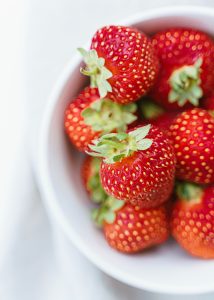 Dietary fiber has become the center of many jokes and comedy routines. That’s because it’s associated with the relief of constipation. However, fiber is important for more reasons than that. If you’re trying to shed extra pounds, eating extra fiber can fill you up without adding a lot of extra calories. Not only does it make you feel full quicker, but it also keeps you feeling full longer.
Dietary fiber has become the center of many jokes and comedy routines. That’s because it’s associated with the relief of constipation. However, fiber is important for more reasons than that. If you’re trying to shed extra pounds, eating extra fiber can fill you up without adding a lot of extra calories. Not only does it make you feel full quicker, but it also keeps you feeling full longer.
The ABCs of fiber.
There are just two broad categories of fiber. The first is insoluble fiber. That’s the roughage your body can’t digest that builds bulk in your stool, keeps it softer and helps you go more easily. Soluble fiber, on the other hand, dissolves in water and creates a gel, which blocks the absorption of fat, aids in lowering cholesterol, and keeps blood sugar levels more stable. It feeds the beneficial microbes in the digestive tract, and they help your body to be healthy by aiding in digestion and absorption of nutrients.
If weight loss is your goal, increase your fiber content.
As noted before, fiber fills you up without adding a lot of extra calories. It also keeps you feeling full longer. Foods that are high in fiber are normally low in calories, such as apples, peas, strawberries and citrus fruit for high soluble fiber content and seeds, whole grains and the edible skins of most fruits and vegetables for insoluble fiber. A plant based diet will provide more fiber, since animal based foods don’t contain fiber.
You can easily increase fiber in your diet by eating healthier.
No matter what your age, fiber is important. Up to the age of fifty, men need 38 grams of fiber daily and women need 25grams. After the age of fifty that requirement drops, with women only requiring 21 grams and men requiring just 30. One easy way to help fill that requirement is having a meatless meal daily. Including just a half cup of navy beans in your meal will provide 6.5 grams of fiber. An apple as a snack offers 2.9 grams of fiber, with 0.9 grams from soluble fiber and 2.0 from insoluble.
- No matter what your reason for increasing fiber in your diet, do it slowly. If you increase it too fast and suddenly eat a lot more than normal, it can cause some unpleasant reactions in your body, like gas and digestive issues.
- Some popular high fiber foods include pears—5.5 g per medium pear, avocado—6.7 g per cup, raspberries—6.5 g per cup and lentils at 7.3 g per cup.
- One unique way to boost fiber is to snack extra fiber in your diet. Guacamole has about 8grams of fiber per serving. Use whole grain tortilla chips to dip and add another 2 grams of fiber. Hummus is also high in fiber and perfect for dipping.
- Highly processed foods often lack any significant amount of fiber. Not only are they low in fiber, but they’re also often high in sugar and simple carbohydrates, which can cause blood sugar levels to rise quickly.
For more information, contact us today at Reggie C. Fitness
